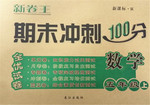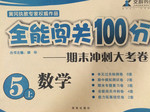题目内容
There is________ “s”in the-word“six”and________ “s’’is the first letter of the word.
A.a; the B.a;an C.an; the D.a;a
练习册系列答案
 新卷王期末冲刺100分系列答案
新卷王期末冲刺100分系列答案 全能闯关100分系列答案
全能闯关100分系列答案
相关题目
题目内容
There is________ “s”in the-word“six”and________ “s’’is the first letter of the word.
A.a; the B.a;an C.an; the D.a;a
 新卷王期末冲刺100分系列答案
新卷王期末冲刺100分系列答案 全能闯关100分系列答案
全能闯关100分系列答案